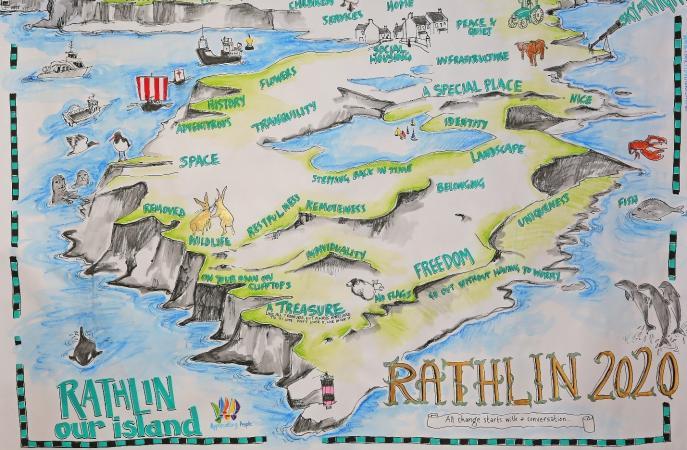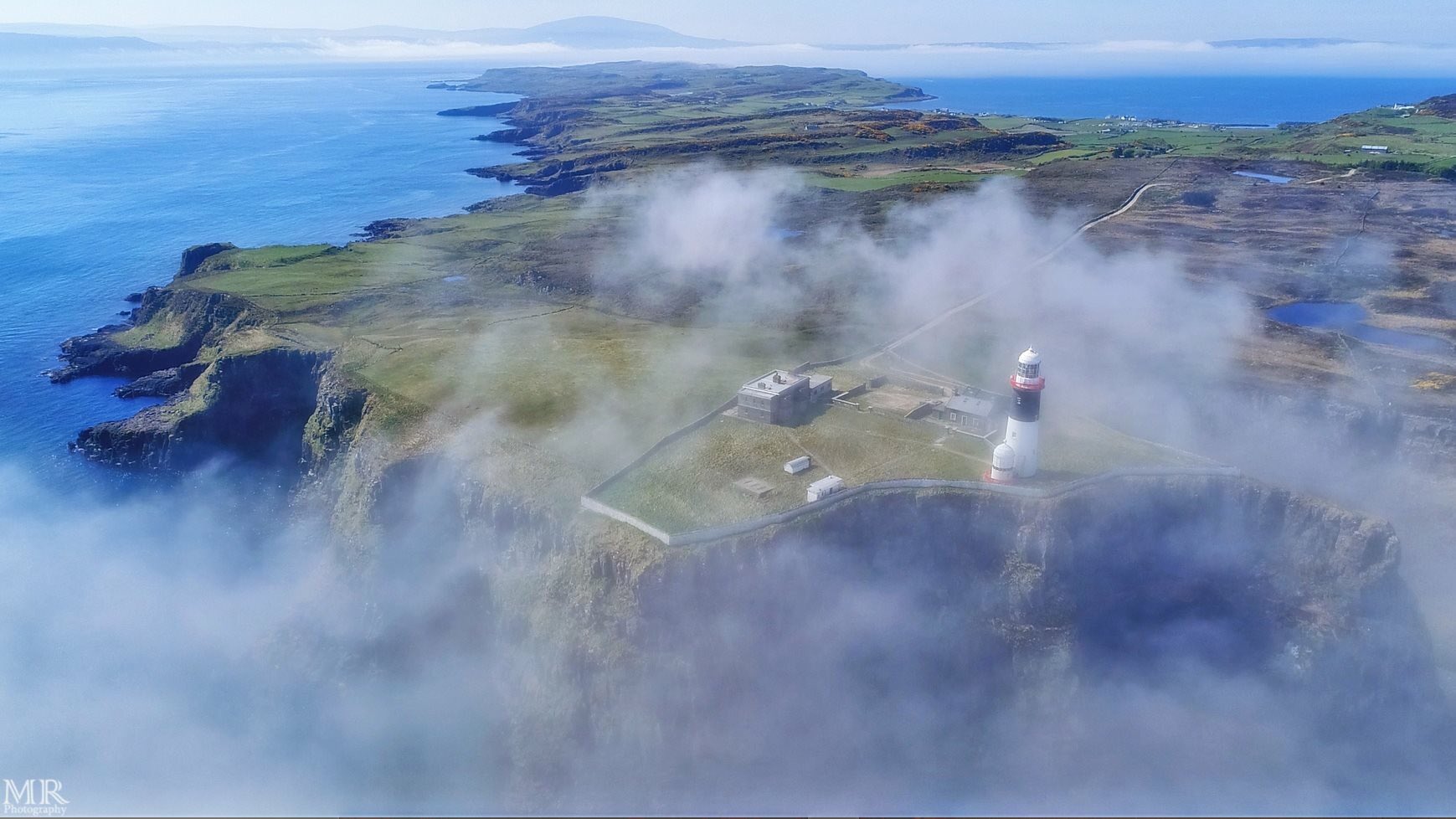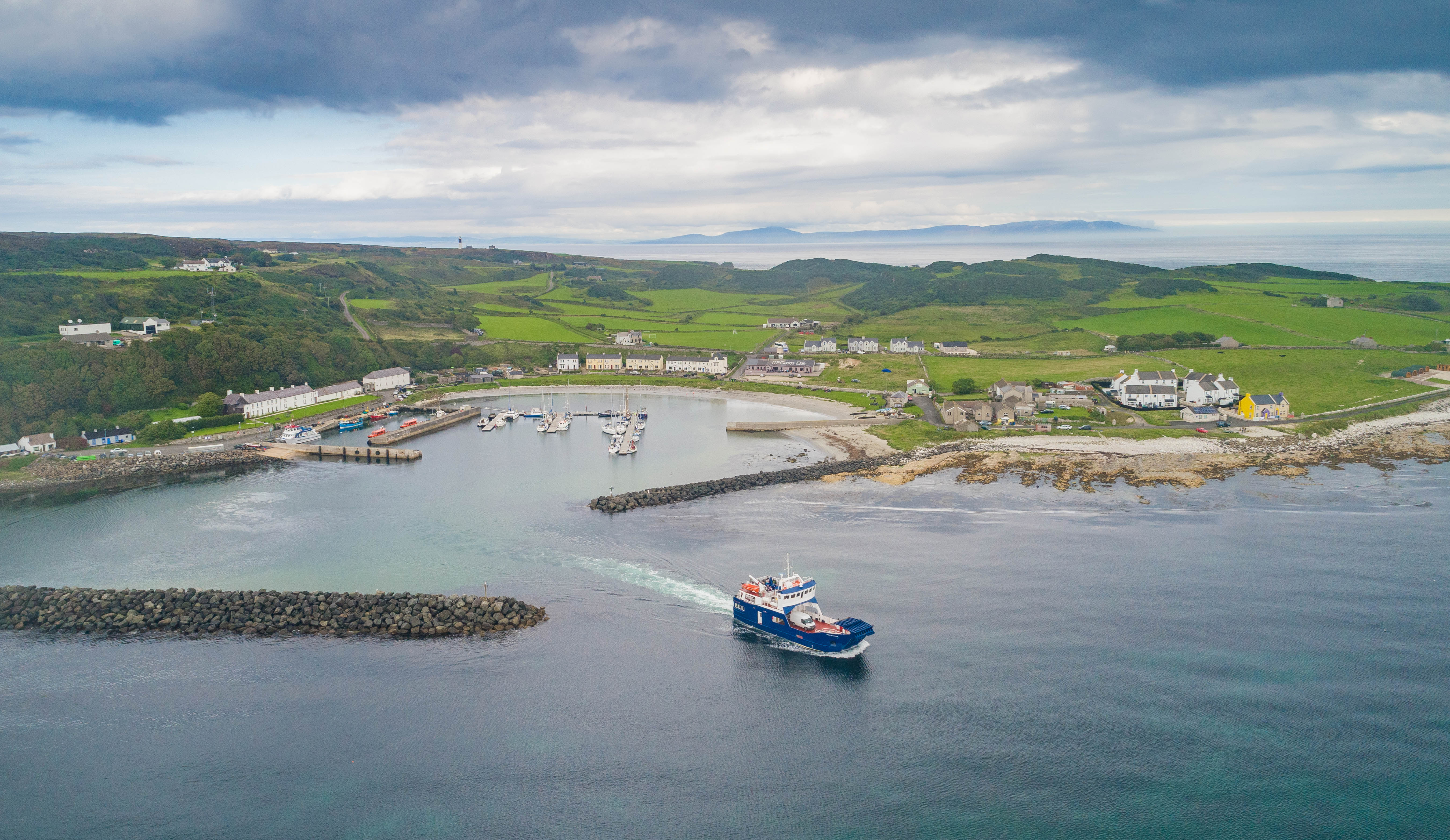
Island facts
A few years ago, the Rathlin Development & Community Association (RDCA) began working with ‘Appreciating People’, a team that used an Appreciative Inquiry model to help make visible some of the aspirations and ambitions of the community for the coming years. The process, Rathlin 2020, involved one-to-one/two conversations with almost all residents over the age of 16, a number of representatives from the partnering statutory bodies and agencies, and creative engagement with the young people in the island school. This was followed by a gathering of about 66% of the population where similar questions were discussed in the community. The first question was “What do you love about living on Rathlin? What are you proud of? What makes it special?” The results were recorded in a Visual Minute image.
Knowledge is power - assessing Rathlin's energy situation
An energy audit of Rathlin Island was completed in October 2019. It was commissioned by the RDCA working with the Department for the Economy (DfE), through the Rathlin Policy Ministerial Forum and prepared by an MSc student, Michael McElrone, of Queen’s University, Belfast.

Although Rathlin Island has significant potential in its indigenous renewable energy sources such as wind, wave geothermal and biomass, it currently relies heavily (more than 95%) on fossil fuels to meet its energy demands. Over one-third of the total energy demand is reported from the domestic sector, with heating accounting for a higher percentage than the national average at 86% over 76%. According to the audit, island homes consume approximately 40% more energy than mainland homes. This corresponds to lower than average levels of home insulation. It is suggested that an island-wide insulation project could reduce domestic heating demand by up to 19% and reduce current emissions by more than 6%. These factors combine to result in higher than (mainland) average levels of fuel poverty which may become a driver towards energy transition.
Electricity is supplied to the island by undersea cable from the mainland but all other fossil fuels are transported to the island, normally by one of the island’s two ferries. Marine gas oil and kerosene for heating energy are the leading demands on fossil fuels and are almost equally matched at 285,000 litres and 290,000 litres respectively. Transport on the island has a relatively small carbon impact as distances are small and vehicle access for visitors is restricted. Private vehicles are refuelled by transporting them to the mainland or by importing fuel in small quantities, eg. in jerry cans.
The average annual emissions for the island are 2,057 tCO2e (Tonnes of CO2 equivalent) with the two diesel-powered ferries responsible for over 800 tCO2e and kerosene powered heating for 734 tCO2e.
This energy audit has provided a valuable baseline for consideration of transition pathways to decarbonisation through insulation, energy use changes and renewable options. The most significant drivers will be the financial benefits and the growing commitment to energy efficiency and reducing carbon emissions. The audit highlights some key concentrated energy uses that, if changed for cleaner options could have a major impact on the overall fossil fuel dependency and corresponding CO2 emissions.
Why did Rathlin decide to transition to clean energy?
Since Rathlin was connected to the mains electricity supply in 2007 by undersea cable, there has been a strong desire to produce energy on the island and move towards carbon neutrality. The RDCA began exploring options in early 2008, initially focusing on a community-owned wind turbine.
It quickly became apparent that an environmental impact assessment would be necessary leading to the production of a full environmental statement. At this time RDCA had little or no funds to professionally produce the numerous chapters involved in this statement so began a process of calling in pro-bono support to piece the work together.
By 2015, Rathlin was in a position to submit a full application to Planning Service and after an initial Planners recommendation for refusal on the grounds of potentially negative impact on tourism. A survey was carried out of over 400 tourists visiting the island. 95% of visitors surveyed were not opposed to the installation of a community-owned wind turbine on the island, and full planning permission was secured in mid-2016. Unfortunately, between submission of the application and the resulting consent, Renewable Obligation Certificate (ROC) support was withdrawn by the Northern Ireland Executive in line with Conservative Government policy in Great Britain, weakening the financial business case for the community project.
Rathlin's desire to turn into a fully green economy has never faded throughout this extended process and has always remained prominent in the Rathlin Policy and associated action plans.
The RDCA took advantage of the ROC support for solar energy and installed a small (3.6kW) solar PV system on the Resource Centre. Our intention is to install a fully electric heating system to replace the current small oil-filled electric radiators. The Rathlin Policy, endorsed by the Northern Ireland Executive in February 2010, states one of its Strategic Objectives is “To develop Rathlin as a carbon-neutral Island generating electricity from renewable sources”.
In keeping with this intent, the most recent action plan supported by the Ministerial Forum involved the RDCA carrying out a full energy audit on the island with a view to producing a baseline of usage (see above). Rathlin aims to study that usage and explore options for energy reduction and alternatives then implement the viable options going forward.
Rathlin appears blessed with abundant renewable resources on the land, on the sea, in the air and under the ground, and are determined to take advantage of these going forward. The islanders are now in conversations with business support agencies to facilitate a comprehensive feasibility study on renewable options for the island with a view to seeking significant funding support to implement appropriate findings. They are also exploring the increasing development of hydrogen fuels and options this may provide in the short to mid-term, particularly for the two ferries, and with a view to possible future hydrogen production on the island.
Challenges ahead
The community’s most immediate challenge is to secure the funding and services for an exhaustive feasibility study on energy reduction and renewable options. Funding has been a significant concern for the island previously as they found that grant support for community renewable solutions available elsewhere across the UK had not been extended to Northern Ireland. However, with the increasing support through the Rathlin Policy Ministerial Forum, this may be addressed with a business feasibility study and subsequent facilitation funding.

The island community has been strongly supportive of the efforts to secure planning permission with a view to the installation of a community-owned wind turbine. This was mostly driven by a desire to develop a stable and significant revenue stream for the community. Although this ambition has been stalled for the reasons outlined above, the local commitment to renewable energy as a revenue stream remains.
The commitment to reducing the island’s carbon footprint is often a second but now increasingly, for many, a primary consideration. A growing awareness of the climate crisis and the part islands may be able to play as ‘lighthouses on the road to decarbonisation’ is strengthening this resolve.
However, commitment to individual transition plans, insulating homes and adopting more efficient energy use will require significant encouragement and support as well as ready access to financial support.
Opportunities to explore schemes that can have major impact on energy efficiency and cleanliness with limited personal demand, such as alternative fuel sources for the two ferries, will be important, as will the community information and support for this to be achieved.
Organisations currently involved in Rathlin's clean energy transition
Rathlin Development & Community Association (RDCA)
Rathlin Policy and Action Plans
